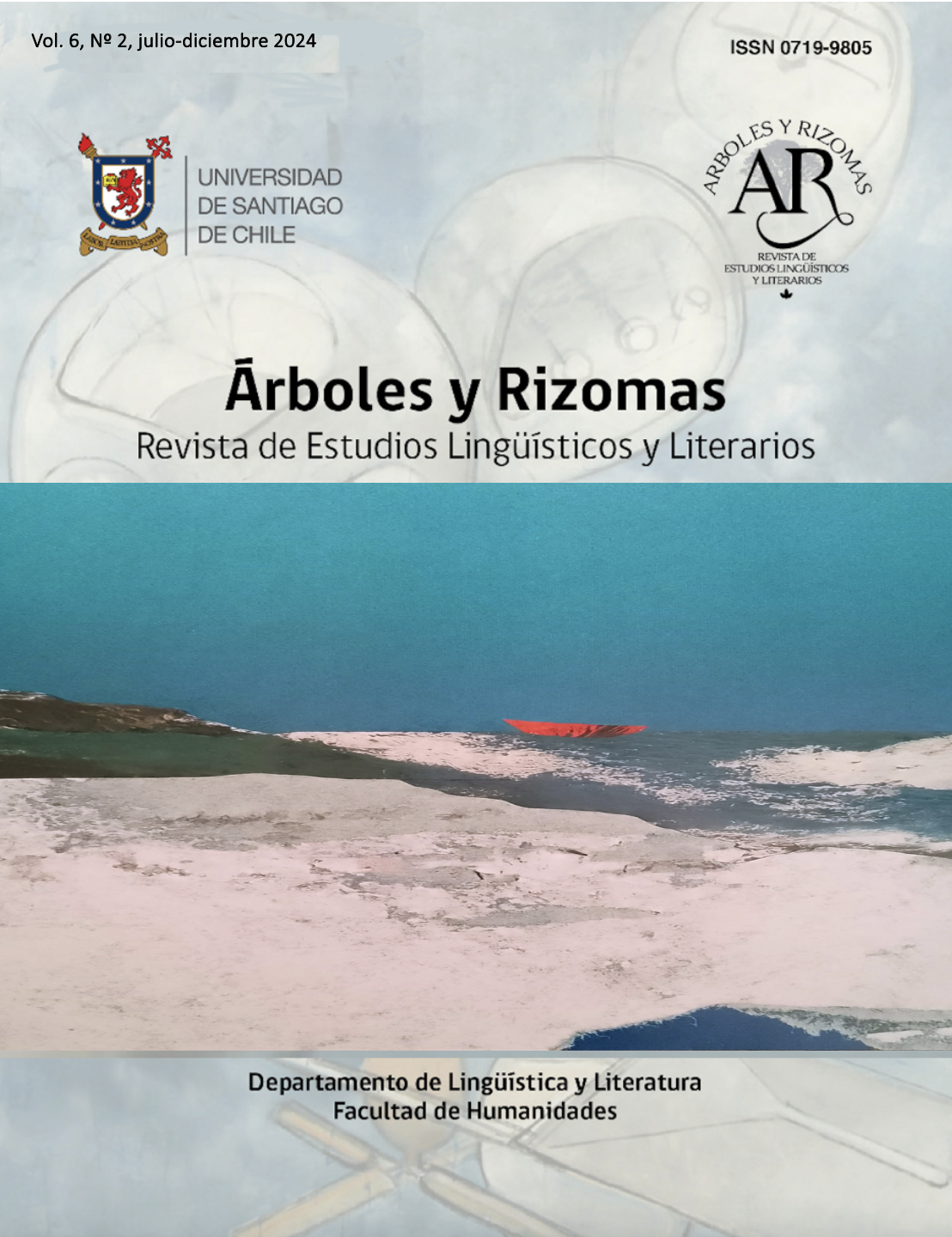¿Justicia o absolución ante un dilema social? Esquemas argumentales de causalidad en discursos de peruanos, colombianos y venezolanos
DOI:
https://doi.org/10.35588/ayr.v6i2.6845Palabras clave:
esquema argumentativo, dilema social, comunidades inmigrantes, pragma-dialéctica, argumentaciónResumen
La construcción discursiva del fenómeno migratorio constituye un aspecto de particular interés en los noticieros, redes sociales y declaraciones de actores políticos en la esfera pública. En muchos casos, se focaliza la inmigración y los migrantes como un todo relativamente homogéneo, sin considerar debidamente las estructuras de diferenciación social. Este estudio se centra en el posicionamiento discursivo de estos colectivos y los patrones argumentativos en los cuales basan sus puntos de vista. El objetivo es identificar los esquemas argumentativos utilizados por inmigrantes de procedencia venezolana, peruana y colombiana frente a un ejemplo clásico de dilema social, considerando país de procedencia y género. El diseño de la investigación es de carácter cualitativo, con un alcance descriptivo-interpretativo. El marco teórico- metodológico de la investigación se basa en análisis de discurso argumental, considerando una perspectiva pragma-dialéctica, junto a aportes del campo de la teoría de la argumentación de Van Eemeren & Grootendorst (2002,2004), Toulmin (1958) y Perelman & Olbrechts-Tyteca (1958). Los resultados muestran contrastes en relación con el uso de esquemas argumentativos causales, así como diferencias entre hombres y mujeres.
Descargas
Referencias
Austin, J. (1962). How to Do Things with Words. Oxford University Press.
Blair, J.A. (2001). Walton's Argumentation Schemes for Presumptive Reasoning: A Critique and Development. Argumentation, 15, 365–379. https://doi.org/10.1023/A:1012021017836
Bravo. J. (2019). Mitos y realidades sobre el empleo migrante en Chile. En N. Rojas y J. Vicuña (Eds.), Migración en Chile: evidencias y mitos de una nueva realidad (pp.49-72). LOM Ediciones.
Colmenares, N. & Abarca, K. (2022). La migración a nivel local en Chile. Desafíos, demandas y políticas en tiempos de pandemia. Si Somos Americanos, 22(1), 164-192. https://dx.doi.org/10.4067/S0719-09482022000100164
Gobierno de Chile. (2024). Política Nacional de Migración y Extranjería. https://serviciomigraciones.cl/wp-content/uploads/2024/01/PNME-25-01-2024.pdf
Ihnen, C. (2017). La argumentación por consecuencias en el debate legislativo chileno: preguntas críticas para evaluar su suficiencia. Onomázein. Revista de Lingüística, Filología y Traducción, 37, 218-243.
Instituto Nacional de Estadísticas. (2022). Informe de Resultados de la estimación de personas extrajeras residentes en Chile al 31 de diciembre de 2021.https://www.ine.gob.cl/docs/default-source/demografia-y-migracion/publicaciones-y-anuarios/migraci%C3%B3n-internacional/estimaci%C3%B3n-poblaci%C3%B3n-extranjera-en-chile-2018/estimaci%C3%B3n-poblaci%C3%B3n-extranjera-en-chile-2021-resultados.pdf
Macagno, F. & Walton, D. (2014). Argumentation schemes and topical relations. En G. Gobber & A. Rocci (Eds), Language, reason and education (pp.185-21). Peter Lang.
Marraud, H. (2013). ¿Es lógi@? Análisis y evaluación de argumentos. Teorema.
Perelman, Ch. (1968). Éléments d’une théorie de l’argumentation. Université de Bruxelles.
Perelman, Ch. & Olbrechts-Tyteca, L. (1958). Traité de la argumentation. La nouvelle réthorique. Université de Bruxelles.
Quintrileo, C. & Martínez, L. (2022). Discurso argumentativo en hombres y mujeres en contexto de inmigración y pandemia: el caso de venezolanos, peruanos y chilenos. Lingüística y Literatura (46), 331-365. https://doi.org/10.29344/0717621X.46.3138
Santibáñez, C. (2018). Generosos y empáticos o ¿pragmáticos y utilitaristas?: los argumentos del adulto mayor chileno frente a un dilema social. Lingüística y Literatura, 40(75), 174–208. https://doi.org/10.17533/udea.lyl.n75a09
Schellens, P. (1987). Types of arguments and the critical reader. En F. H. van Eemeren, R. Grootendorst, J. A. Blair & C. A. Willard (Eds.), Proceedings of the Conference on Argumentation 1986: Argumentation, analysis and practice (pp. 34-41). Foris Publications.
Searle, J. (1965). Speech Acts: An essay in the philosophy of language. Cambridge University Press.
Stefoni, C. & Brito, S. (2019). Chile: un destino más en el mapa migratorio intrarregional. En N. Rojas & J. Vicuña (Eds.), Migración en Chile: evidencias y mitos de una nueva realidad (pp. 23-48). LOM Ediciones.
Tijoux, M. (2019). Racismo en Chile. Inmigrantes vulnerados. Anthropos cuadernos de cultura crítica y conocimiento,251, 175-183.
Toulmin, S. (1958). The Uses of Argument. Cambridge University Press.
Van Eemeren, F. (2016). Identifying Argumentative Patterns: A Vital Step in the Development of Pragma-Dialectics. Argumentation, 30, 1–23.https://link.springer.com/article/10.1007/s10503-015-9377-z
Van Eemeren, F. & Grootendorst, R. (2002). Argumentación, comunicación y falacias. Una perspectiva pragma-dialéctica (C. López & A. Vicuña, Trad.). Ed. Universidad Católica de Chile.
Van Eemeren, F. & Grootendorst, R. (2004). A Systematic Theory of Argumentation. The Pragma-Dialectical Approach. Cambridge University Press.
Van Eemeren, F.; Grootendorst, R. & Snoeck Henkemans, F. (2006). Argumentación. Análisis, evaluación, presentación (R. Marafioti, Trad.). Editorial Biblos.
Van Eemeren, F., Houtlosser, P. & Snoeck Henkemans, F. (2007). Argumentative indicators in discourse. A pragma-dialectical Study. Springer.
Van Eemeren, F. (2012). Maniobras estratégicas en el discurso argumentativo (C. Santibáñez, Trad.). Plaza y Valdés Editores.
Van Eemeren, F. & Grootendorst, R. (2013). Los actos de habla en las discusiones argumentativas (M. Molina, C. Santibáñez & C. Fuentes. Trad.). Ediciones Universidad Diego Portales.
Walton, D. N. (1996). Argument Schemes for Presumptive Reasoning, Lawrence Erlbaum Associates.
Walton, D. N. (2001). Abductive, presumptive and plausible arguments. Informal Logic, 21(2) 141-169. https://doi.org/10.22329/il.v21i2.2241
Descargas
Enviado
2024-08-24Publicado
Número
Sección
Licencia
Derechos de autor 2024 Cecilia Quintrileo LLancao

Esta obra está bajo una licencia internacional Creative Commons Atribución 4.0.






